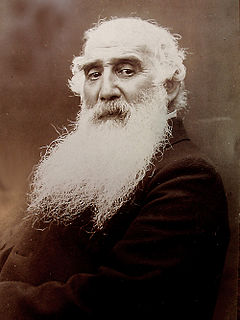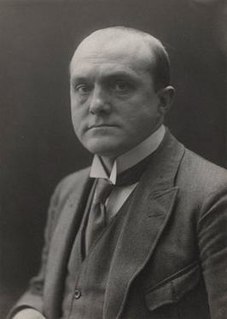A Quote by Walter Pater
But when reflexion begins to play upon these objects... like some trick of magic each object is loosed into a group of impressions - colour, odour, texture... And if we continue to dwell in thought on this world... the whole scope of observation is dwarfed into the narrow chamber of the individual mind.
Related Quotes
Sensibility... is a direct and particular reaction to the separate and individual nature of things. It begins and ends with the sensuous apprehension of colour, texture and formal relations; and if we strive to organize these elements, it is not with the idea of increasing the knowledge of the mind, but rather in order to intensify the pleasure of the senses.
When he tries to extend his power over objects, those objects gain control of him. He who is controlled by objects loses possession of his inner self... Prisoners in the world of object, they have no choice but to submit to the demands of matter! They are pressed down and crushed by external forces: fashion, the market, events, public opinion. Never in a whole lifetime do they recover their right mind!... What a pity!
The individual representation of the object, treated sympathetically or antipathetically, is highly necessary and is an enrichment to the world in form. The elimination of the human relationship causes the vacuum which makes all of us suffer in various degrees - an individual alteration of the details of the object represented is necessary in order to display on the canvas the whole physicals reality.
It is a curious subject of observation and inquiry, whether hatred and love be not the same thing at bottom. Each, in its utmost development, supposes a high degree of intimacy and heart-knowledge; each renders one individual dependent for the food of his affections and spiritual life upon another; each leaves the passionate lover, or the no less passionate hater, forlorn and desolate by the withdrawal of his object.
Objects must cease, mind must become just a pure mirror - a mirroring, not mirroring anything - just a mirror without any object in it, a pure mirror. By dhyan, this purity of the mind is indicated. So first, no object should be in the mind. Mind must remain alone without thinking about anything - with no thought, just a consciousness, just an awareness, just an alertness. This alertness without any object is meditation.




































